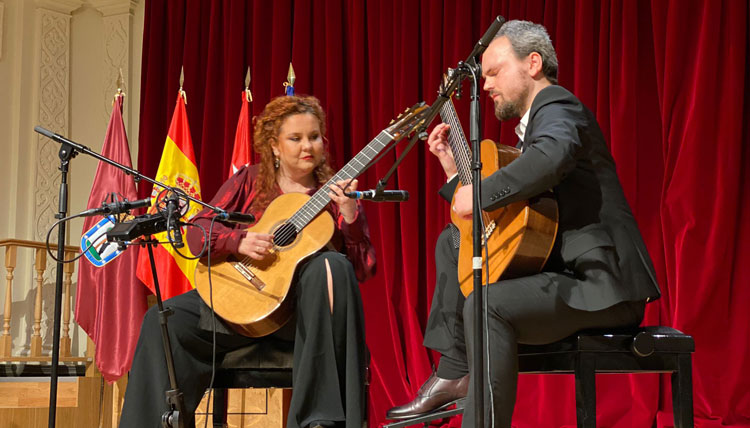Eduardo González
The President of the Government, Pedro Sánchez, highlighted yesterday that the conclusions of the European Council regarding the situation in Gaza “reflect the position that Spain has been defending since the conflict broke out.” Likewise, the head of the Executive reached an agreement with the prime ministers of Slovenia, Ireland and Malta to recognize the Palestinian State.
The conclusions of the leaders of the 27, meeting since Thursday in Brussels, “reflect the position that Spain has been defending since the conflict broke out and clearly call for a ceasefire, for the opening of land corridors, for no the offensive on Rafah begins, to continue supporting the work of UNRWA in the Strip and in the entire region, and to promote a peace conference that leads to the two-state solution,” Sánchez declared in the subsequent press conference. to the Council. These are “conclusive” conclusions after “many months of silence,” he added.
In the opinion of the President of the Government, the two-state solution is the only way to end the conflict and “guarantee lasting peace.” For this reason, Sánchez insisted on the importance of governments from different regions of Europe and political families expressing their willingness to recognize Palestine, which would represent “a decisive step to resolve this crisis and lay the foundations for a peace that lasts over time.”
“The question is when to do it,” warned the head of the Executive, who recognized the complexity of reaching an agreement among the 27 on this point. “We will have to calibrate among all States when we take that step,” since it is “a cause that seems fair to me and shared by a very large majority,” he added.
As a first step, Pedro Sánchez organized yesterday, on the margins of the Council, a meeting with the prime ministers of Slovenia, the social-liberal centrist Robert Golob; Ireland, the conservative Christian Democrat Leo Varadkar; and Malta, Labor’s Robert Abela, in which the joint commitment to recognize the Palestinian State “when the necessary conditions are met” was adopted.
In the joint statement, the four leaders reiterate that “the only way to achieve lasting peace and stability in the region is through implementation of a two-state solution, with Israeli and Palestinian States living side-by-side, in peace and security”. “We discussed together our readiness to recognise Palestine and said that we would do so when it can make a positive contribution and the circumstances are right”, add the text-
Since the conflict began, Spain has managed to harmonize with some of these countries, especially Ireland. In mid-January, Pedro Sánchez and Leo Varadkar asked the European Commission to “undertake an urgent assessment” of Israel’s compliance with its human rights obligations arising from the EU/Israel Association Agreement. Likewise, they warned that “the application of the two-state solution is the only way to guarantee that this cycle of violence is not repeated” and, therefore, they affirmed that “the EU has the responsibility to act to make this a solution.” “In reality, in coordination with the parties and the international community, including the holding of an international peace conference, as agreed by the European Council on October 26.”
Two months earlier, Sánchez and three other EU prime ministers (Varadkar, Abela and the Belgian Alexander de Croo) sent a letter to the president of the European Council, Charles Michel, in which they called for a “serious debate” within the EU with a view to agreeing on “a clear and common position” of the Twenty-Seven on the conflict in Gaza.
There are currently nine EU Member States that recognize Palestine. Eight of them –Bulgaria, Cyprus, the Czech Republic, Hungary, Malta, Poland, Romania and Slovakia– took the step in 1988, before entering the EU, while Sweden did so alone in 2014, fulfilling an electoral promise. of the social democrats.
Council conclusions
During the meeting, the European Council called for “an immediate humanitarian pause leading to a sustainable ceasefire” in the Gaza Strip, demanded “the unconditional release of all hostages and the provision of humanitarian assistance”, called for “immediate measures” to prevent further population displacements and provide safe shelter to the population and urged the Israeli Government to “refrain from carrying out a ground operation in Rafah, where more than a million Palestinians are seeking safety.”
Likewise, he reiterated his condemnation “in the strongest terms” of the Hamas attacks against Israel on October 7, 2023, recognized “Israel’s right to defend itself in accordance with international law and international humanitarian law,” called for “the immediate release of all hostages without any preconditions” and called on the Council to “accelerate efforts to adopt new sanctions against Hamas.”
In addition, the EU leaders reiterated the “firm commitment of the European Union to a lasting and sustainable peace based on the two-state solution” that lives “in security, dignity and peace” and assured that the Union “is willing to work with Israel, the Palestinian Authority and regional and international parties to contribute to the revival of a political process.”
The 27 also supported independent investigations into “all allegations of sexual violence,” called for an immediate end to violence in the West Bank and Jerusalem, “strongly” condemned “extremist settler violence,” and warned that “perpetrators must be held accountable.” accounts of their actions.”







